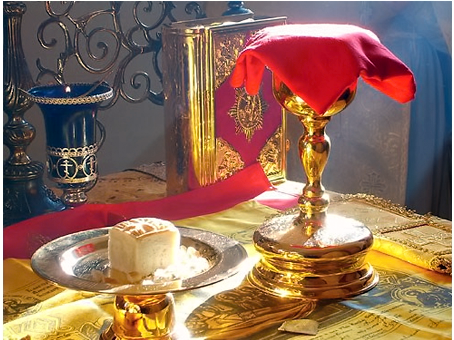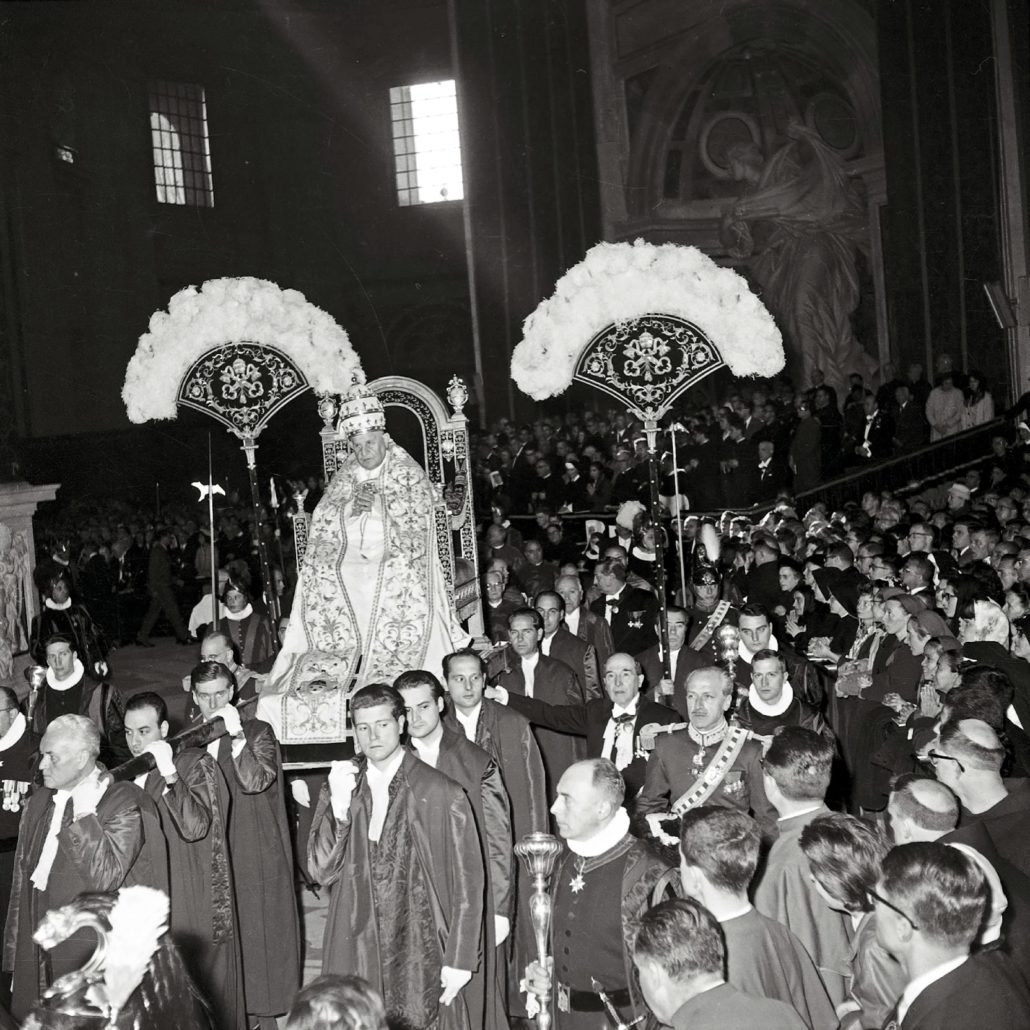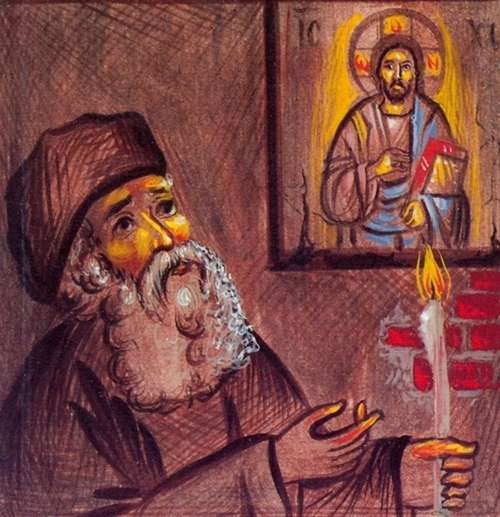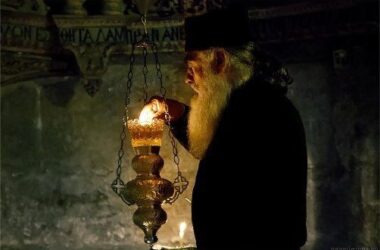- But does the chanted prayer have any value?
The chanted prayer is very powerful. When we are deeply moved we express our feeling by chant. The religious chant is a wonderful prayer. It helps the mind to fly to God. That’s why saint Paul, the Holy Apostle urges the Colossians to get used and gain wisdom by singing psalms and praises and religious chants
` Let the message of Christ dwell among you richly as you teach and admonish one another with all wisdom through psalms, hymns, and songs from the Spirit, singing to God with gratitude in your hearts. `(Col. 3, 16).
The chanted prayer was cultivated by king David (+1015 b.c.), by the Savior and the Apostles (Matthew 26, 30; Mark 14, 26), by saint John Chrysostom (+ 407), by saint Ambrosius of Mediolan (+397), by saint Nikita from Remesiana (+c. 420) and by other Holy Fathers and great scholars of the Church.
- Of how many kinds is the prayer after its content ?
After its content the prayer is of three kinds : 1.The prayer which has as aim to praise God; 2.to thank God and 3.to request from Him what is in accordance with His will: `We praise You, we bless You, we give thanks to You and we pray to You, Lord, our God!`
1.The prayer of praise is the one through which we bless, praising the Lord our God for His incomparable greatness, for His eternal glory, as the psalmist says: `Every day I will praise you
and extol your name for ever and ever.
Great is the Lord and most worthy of praise;
his greatness no one can fathom.(Psalm 145, 2)
The traveler in foreign lands marvels and praises the beautiful places he sees in his way but how far is the beauty of the visible world of the beauty of God!
The angels seeing directly His endless glory, praise Him and bless Him singing: `Holy, Holy, Holy!` (Isaiah 6,3) as they had sung praises to the Savior – child just born in Betlehem (Luke 2,14)
The angels see God face to face, stunned by amazement and their prayers become a ceaseless song of praise. To sing praises to God is occupation of the dwellers of heaven (Apocalypse 4, 8-11); but even we on earth, knowing God’s glory from His creation and also from His revelation, have the duty to praise God in our prayers first. For this reason the Church praises God all the time. Its chants: Trisagion…`Holy, Holy, Holy, Lord God of Sabaoth`, the big and small Doxology, `We praise You…`as well as the different doxologies served on various occasions are full of praises to God. A song of praise is the chant dedicated to Theotokos as well: `My soul glorifies the Lord and my spirit rejoices in God my Savior` (Luke 1, 46).
- The prayer of thanks is the on through which we show that we remember gratefully and lovingly all the blessings received from God. The following words of saint Paul, the Apostle show that God asks us to be thankful to Him for all the blessings: ` Pray continually,give thanks in all circumstances; for this is God’s will for you in Christ Jesus.` (I Tes. 5, 17-18).
Noah`s prayer when they got out of the Ark was a prayer of thanks (Genesis 8,19) that one of the old people of Israel at their exit from Egypt was one of thanks too (Exodus 15,1-21). But many times God stops His blessings for those who don’t know how to value them and they never thank Him. For this, instead of blessings we receive troubles.
- The prayer of request is the one through which we ask from God everything we need in our life or the one through which we ask Him to forgive our sins to save us of punishment and to pour over us, over our soul and body His Holy Grace`318.
God wants us to ask from Him everything we need, because without prayer He doesn’t give anything (Jacob 4, 2).
God wants from us to pray persistently, saint Gregory the Great says that He wants us not only to pray to Him but to urge Him. Of course God knows all our needs (Matthew 6,32) and He could fulfill them without asking Him. But He wants us to ask Him, so that we would not consider He owes us any of His blessings, but appreciate them as acts of beneficence and be grateful from the bottom of our hearts, with humbleness and love. The prayer of the Savior from the Garden of Gethsemane and from the Cross, of the archdeacon and saint martyr Stephen when he was lapidated (Acts 7,59), of the Christians who prayed for the release of saint Paul, the Apostle from the prison (Acts 12,5), of the Holy Apostles in the ship surrounded by storm (Matthew 8, 25) and there are many other examples of prayers of request.
Beside those from above there is the prayer of king David: `Have mercy upon me, of God…`(Psalm 51) which is the prayer for the absolution of sins, the prayer about God’s mercy, the prayer of repentance. This psalm is said at confession too.
- Which are the benefits of the prayer?
Through prayer we can obtain everything from God, but He doesn’t always or immediately fulfill our prayers.
Blessed Augustine says that the prayer is `the key of the treasury of divine gifts`, since you can receive all goods from God through prayer and the Savior promises this when He says: `If you believe, you will receive whatever you ask for in prayer`(Matthew 21, 22) and again: `ask and it will be given to you.` (Matthew 7, 7) Thus when we are in trouble we should run to God for help, since He will help us as He helped the Holy Apostles during the storm (Luke 8, 24) That’s why anyone who is obdurate and doesn’t want to pray to God in time of danger has no right to complain.
God doesn’t always or immediately fulfill our prayer. Monica, the mother of saint Augustine prayed for 18 years to God for the return of her son to Christ. Many times God waits to be entreated so that our prayer may be purposefully made, giving us the opportunity to honor the gifts as it’s due.
Thus if we really want to have our prayers answered, we should pray with much more persistence and warmth when God delays the fulfillment of our request. This is what the blind man from Jericho did: the more Christ pretended He did not hear his prayer, the louder he cried: `Jesus, Son of God, have mercy on me.`(Luke 18, 38).






